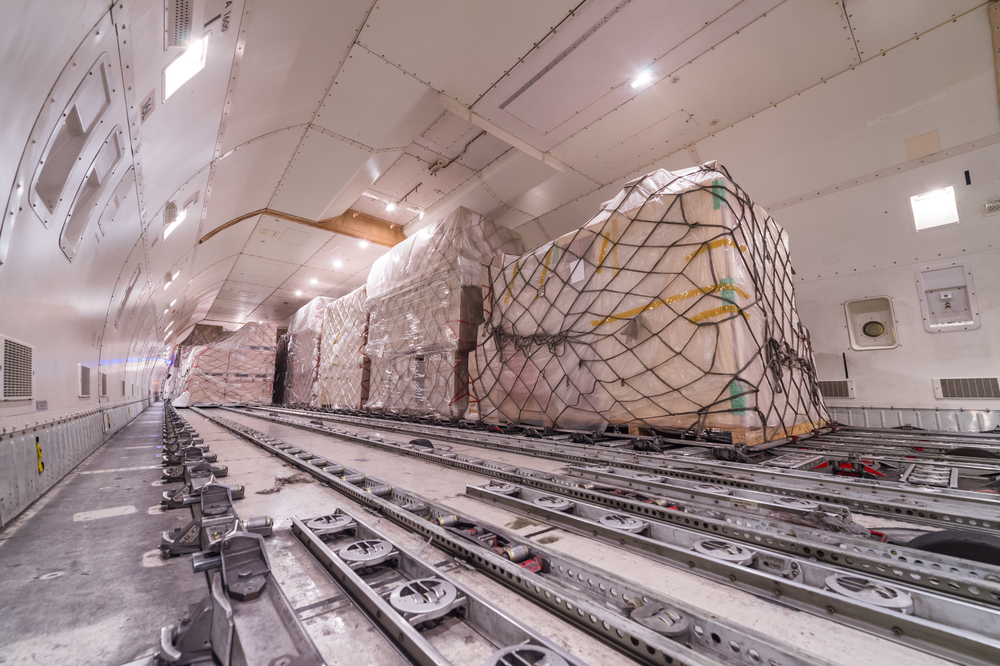The rise of air cargo in UK trade
03 / 11 / 2023

Credit: tratong/ Shutterstock
Transporting goods internationally in fast and efficient operations is paramount for logistics businesses to remain competitive in the 21st century.
Moving freight by air enables businesses to move perishable goods and high-value assets quickly and securely while keeping costs low.
However, airfreight has not always been so easily accessible, especially during the 1800-1900s where maritime trade helped globalise the UK.
The invention of the steamboat in the early 1800s revolutionised shipping, especially useful for the transportation of crops, and paved the way for transportation via water.
Merchant sailing ships were vital for Britian’s trade as it allowed for goods to be imported from the Americas, Africa and Asia.
Towards the late 19th century steamer ships were used to transport luxuries such as coffee, tea, sugar, cotton, spices, and tobacco from all over the world to Britain’s ports.
However, operations were not as streamlined as they are today and shipping goods was a time-consuming and labour-intensive process.
Ships would spend more time in ports, loading and unloading shipments than they would spend at sea, with theft being a significant issue due to the long periods of time goods were left unattended.
The arrival of containers and intermodal shipping revolutionised the shipping industry by using cargo containers that could readily fit onto trucks, trains, and ships.
As the logistics industry has adapted and become more competitive, the use of other modes of transportation has grown as a result of operators vying to meet higher customer demands for faster delivery times.
Compared to shipping, airfreight’s flexibility allows for more frequent departures. For example, if a cargo shipment is to miss its allotted flight, the recovery time is much less.
This versatility ensures that airfreight is a reliable option for businesses where delivery time is a necessity.
With the rise in online commerce and ‘just in time’ deliveries, airfreight has become increasingly popular and is now a significant facilitator in global trade.
For time-sensitive goods, air cargo is often favoured over sea freight as shipping can be a longer process due to disruptions in shipment schedules and port congestion, which limits the transportation of fresh goods.
Additionally, air cargo often requires less packaging than other shipping methods, thus saving on transportation costs and reducing wastage.
However, capacity is limited with restrictions already being imposed on night flights and passenger flights taking priority over strictly cargo flights.
Now contributing £300m and 70,000 jobs to the UK economy every year, as reported by the Office for National Statistics in 2023, the airfreight sector is fundamental to the logistics industry.
However, maritime trade is also essential in safeguarding the UK’s economy as approximately 95% of all UK imports and exports by volume are moved by sea.
In March 2022, GOV.UK recorded that the maritime sector supports £17bn in Gross Value Added and 220,100 jobs across the UK.
The supply chain is a complex system. There is no ‘one-size-fits-all’ solution and it is positive to have varying transport modes which each present advantages depending on business needs.
The progress made across both maritime and air over the years to ensure they are viable shipping solutions is encouraging and as the only business group to represent all modes of logistics – road, rail, air and shipping – in the UK, Logistics UK will continue to work with members to ensure this progress can continue.














